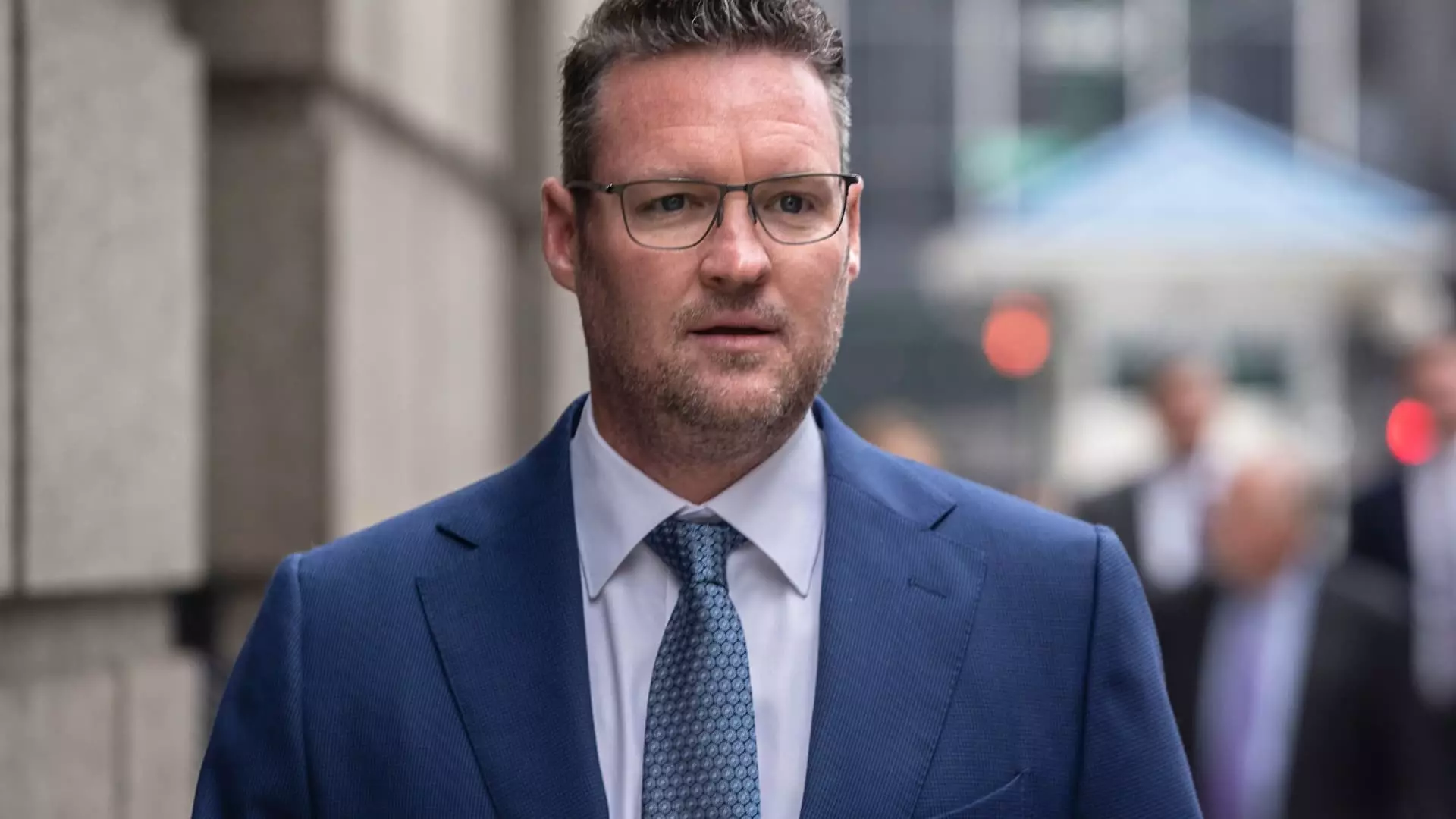In a move that sent shock waves through the political and economic landscape, former President Donald Trump granted a pardon to Trevor Milton, the founder of Nikola Corporation, following his conviction for defrauding investors. This decision, made public two weeks after federal prosecutors requested substantial restitution for Milton’s fraudulent activities, raises serious questions not only about justice but also broader ethical standards in governance. It’s an alarming indication of how political entanglements can manipulate accountability, overshadowing the rigorous checks that are vital in any democratic society.
Milton’s claims of being wrongfully persecuted echo a familiar narrative employed by those in power. Upon receiving his pardon, he broadcasted a gloating message on Instagram, depicting his release as a personal victory against a supposed corrupt government. Such rhetoric can be intoxicating to the supporters of the political establishment he aligns with while dangerously undermining trust in judicial systems. The core of Milton’s defense—that he’s a victim of a biased justice system—mirrors sentiments expressed by Trump himself during his legal tribulations, and this pattern cannot be overlook.
The Price of Political Donations
One must ponder the extent to which American politics is influenced by the greenback. Milton, who made substantial political contributions, particularly to Trump in the lead-up to his pardon, reflects a concerning trend in the marriage of money and influence. The $920,000 donation to the Trump 47 Committee stands out like a neon sign advertising the potential for quid pro quo transactions in political circles. Such transactions blur the lines between legal fundraising and outright bribery, creating an atmosphere where loyalty is purchased rather than earned.
This development is not just a page from a sensationalized political drama; it symbolizes a larger, systemic issue. When financial resources dictate legal outcomes, the average citizen’s faith in the justice system diminishes. The glaring contrast between Milton’s financial might and the losses suffered by tens of thousands of distressed investors illustrates the profound imbalance that controversies such as these high-profile pardons perpetuate. As investors lost their hard-earned savings due to Milton’s deceitful tactics, he drives off in the company of political elite.
A Crisis of Trust in the Justice System
Milton’s assertion that his pardon was indicative of the broader failures in the justice system is both unsettling and revealing. It represents the perspectives of individuals who no longer see the courts as bastions of fairness and accountability, but rather as tools susceptible to manipulation. His comments about judges bending to prosecutor narratives reflect a growing skepticism that could foster resentment against law enforcement agencies and judicial authorities.
The pardon essentially absolved him of a $1 million fine and eliminated any chance for restitution to the victims he defrauded, further compounding the issues of accountability and moral hazard in the legal realm. It begs the question: what message does this send to future corporate wrongdoers in America? Lax accountability fosters an environment where the wealthy and privileged can navigate around regulations and ethical safeguards, while those less fortunate bear the brunt of predatory practices.
The Ripple Effect on Corporate Governance
Milton’s case carries profound implications for corporate governance practices across the nation. The eventual collapse of Nikola Corporation—having gone from a market valuation of $30 billion to filing for Chapter 11 bankruptcy in less than five years—demonstrates the stark consequences of misleading business practices. Investors were misled through false portrayals of product viability, which fueled a frenzied stock price surge but ultimately resulted in devastating losses for numerous individuals and families.
To compound matters, Milton’s past claims about creating a “fully functioning” prototype of a hydrogen-powered truck represent a dangerous precedent for future CEOs. They witness a growing culture of detachment from the ramifications of dishonesty. The message becomes one of opportunism, where returns can be reaped from duplicitous practices without repercussions. With false statements igniting the fires of investor trust, the fallout extends beyond Milton’s personal reckoning to challenge the integrity of the larger marketplace.
The Pardon as a Political Weapon
In the aftermath of this controversial pardon, it’s crucial to recognize how Trump’s use of presidential pardons is increasingly employed as a political weapon rather than a tool for genuine justice or correction of wrongful convictions. Milton’s case serves as just one glaring example that showcases how the upper echelons of political power can be wielded to reinforce a lack of accountability for those who fund and enable the establishment.
The unsettling frequency of pardons granted to individuals facing serious legal challenges—both from Trump and other political leaders—creates a worrying precedent in American political life. Such actions are more than mere legal formalities; they signify the erosion of democratic norms, where morality can be eclipsed by financial influence. The integrity of our justice system hinges on the belief that laws apply uniformly to all Americans, regardless of wealth, race, or political allegiance.
Through Trump’s shocking and widely criticized pardon of Trevor Milton, we are reminded that the intersection of power, money, and justice remains deeply problematic. It’s a narrative that not only defines the current political landscape but will reverberate through time, shaping the continuous struggle for equity and justice in America. The only question left is whether accountability for corporate malfeasance will continue to erode as long as power remains monetized and concentrated in the hands of a few.


Leave a Reply